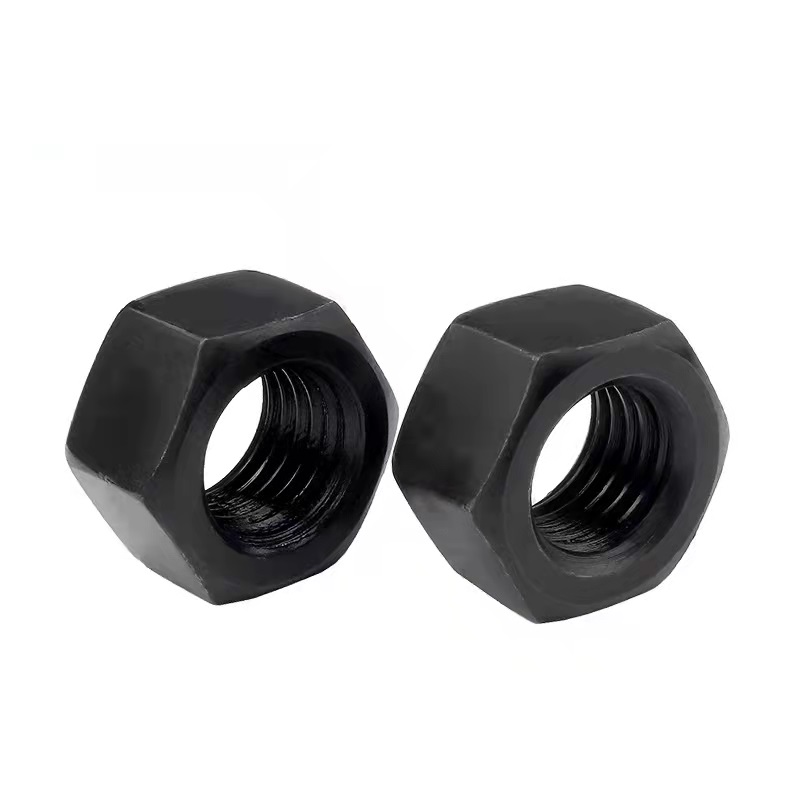12 inch carriage bolts factories
okt . 13, 2024 00:18 Back to list
12 inch carriage bolts factories
Exploring the World of 12-Inch Carriage Bolt Factories
Carriage bolts, with their distinctive round heads and square necks, are essential components in various construction and woodworking applications. Among the myriad of sizes available, the 12-inch carriage bolt is particularly notable for its versatility and strength. As the demand for robust fastening solutions continues to grow, factories specializing in the production of 12-inch carriage bolts are becoming increasingly significant. This article delves into the manufacturing processes, quality control measures, and the challenges these factories face in today's competitive market.
Manufacturing Process of 12-Inch Carriage Bolts
The manufacturing of 12-inch carriage bolts typically begins with the selection of high-quality raw materials. Most manufacturers use carbon steel or stainless steel, depending on the required properties and the intended application. The production process can be divided into several key stages, including forging, threading, and finishing.
1. Forging The initial stage involves heating the steel to a specific temperature to make it malleable. The heated steel is then forged into the desired shape of the carriage bolt. This process not only ensures the bolt has the right dimensions but also enhances the structural integrity of the final product by aligning the grain of the metal.
2. Threading After forging, the next step is to add threads to the shaft of the bolt. This is typically done using a threading machine, which cuts the threads with precision. The dimensions and depth of the threads are crucial, as they determine how well the bolt will fit into corresponding nuts or pre-drilled holes.
3. Finishing Once the threading is complete, the bolts undergo various finishing processes. This may include cleaning, surface treatment, and coating. Surface treatments, such as galvanization, are essential for enhancing corrosion resistance, particularly for bolts intended for outdoor or marine applications.
Quality Control Measures
12 inch carriage bolts factories

Quality control is paramount in the manufacturing of 12-inch carriage bolts. Factories implement rigorous inspection protocols to ensure every product meets industry standards and customer specifications. This includes dimensional checks using calipers and gauges, as well as tensile testing to assess the strength and durability of the bolts.
Furthermore, many factories adhere to internationally recognized standards, such as ASTM or ISO certifications. Compliance with these standards not only enhances product quality but also increases customer trust. Some manufacturers even employ advanced technologies like robotics and automated sorting systems to enhance precision and consistency in their production lines.
Challenges Faced by Carriage Bolt Factories
Despite the growing demand for 12-inch carriage bolts, factories face several challenges that can impact their operations. One significant concern is the fluctuation in raw material prices. The cost of steel can vary considerably due to market conditions, affecting production budgets and price-setting strategies.
Another challenge is the rising pressure to adopt sustainable practices. As environmental concerns become more pronounced, factories must find ways to reduce their carbon footprint. This might involve investing in energy-efficient machinery, optimizing waste management protocols, and sourcing materials responsibly.
Additionally, competition in the fasteners market is fierce. With numerous manufacturers globally, factories must differentiate themselves through innovation, quality, and customer service to maintain a competitive edge.
Conclusion
12-inch carriage bolt factories play a crucial role in the construction and woodworking industries by providing essential fastening solutions. Through meticulous manufacturing processes, robust quality control measures, and a commitment to overcoming industry challenges, these factories continue to deliver reliable products. As technology evolves and market demands change, the future of carriage bolt manufacturing will likely embrace greater efficiency, sustainability, and innovation, ensuring these indispensable components remain a staple in various applications for years to come.
Latest news
-
High-Quality Bolts for Lawn Mower Handle Supplier & Manufacturer
NewsAug.21,2025
-
Reliable Axle Nuts Supplier | High-Quality Automotive Parts
NewsAug.19,2025
-
Premium Wire Bolts Suppliers | Durable & Reliable Fasteners
NewsAug.18,2025
-
Leading Metric Wood Screw Companies & Manufacturers
NewsAug.17,2025
-
Top Wire Bolts Suppliers - Quality & Durable Fasteners
NewsAug.15,2025
-
Trusted Wire Bolts Company | Quality Fasteners Supplier
NewsAug.14,2025
